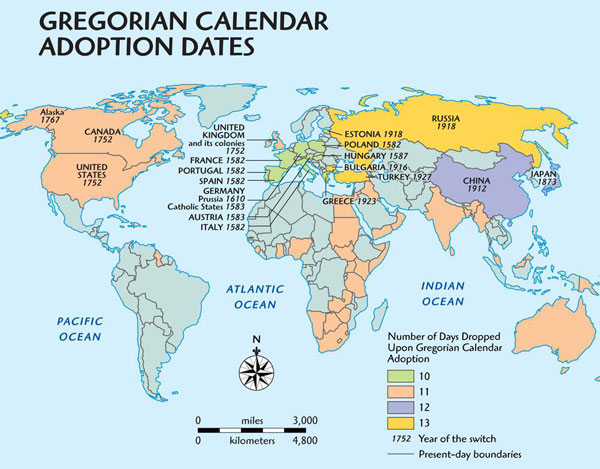Happy New Year!
You might have a new, blank 2021 calendar to plan your schedule for the coming year. Did you know that Easter plays a prominent role in the calendar you will use?
Today’s internationally accepted civic calendar is the Gregorian Calendar, which was first introduced in 1582. It is also known as the Western or Christian calendar, and it is used for our everyday scheduling practices.
This time-keeping planner was intended to correct a problem with the standard scheduling tool at the time, the Julian Calendar. Named after Emperor Julius Caesar, the calendar was first implemented in 46 BC. It inaccurately projected the Earth’s annual journey around the sun. For this reason, the observance of Easter, traditionally held on March 21st, eventually fell out of synch with the spring equinox, which was the time the Resurrection of Our Lord was recognized since the beginning of Christendom. Pope Gregory XIII commissioned the creation of a new calendar to reconcile a date-keeping system to align Easter’s observance to its place on the first Sunday on or after the Full Moon date after the spring equinox (around March 21st).
Despite the calendar adjustment being implemented to address religious concerns surrounding Easter, it was not accepted by all the faithful. In fact, Pope Gregory XIII’s papal order enacting the new calendar was received with skepticism from Protestant nations fearing it was an attempt to silence the new movement. Part of Lutheran Germany would not adopt the new calendar until 1700, with the Church of England and its colonies trailing behind more than 50 years later.
We invite you to join us for worship at 10:30 am on the tenth day of Christmastide, the first Sunday of Christmas, and the third day of the 2021 Gregorian Calendar, Sunday, January 3rd. We will continue to celebrate the birth of our Lord, and look forward to the Resurrection of Our Lord, which will be observed on the Gregorian Calendar this year on April 4th – in 93 days.

